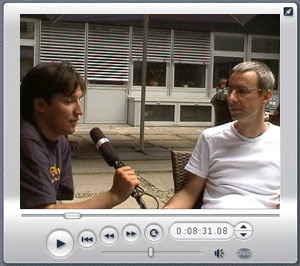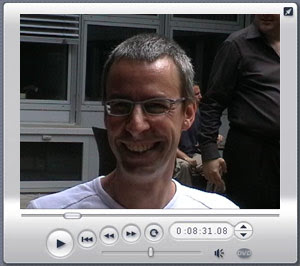Gilberto Gil is the Brasilian minister of culture. He is still an active musician and currently on a European tour. Digitale Allmend interviewed him by e-mail and proudly presents the questions and answers.
What are the advantages, from an artists point of view, of releasing material under an open license (CC, or copyleft)?
I think that, thru one of these licenses, the artist will keep direct control of his or her work by establishing or reestablishing self-management as a real possibility. The works would be under the
artist’s direct administration and authorship supervision.
Should free appropriation of culture (e.g. remixing, sampling of music) always be possible? What cases would you exempt?
It has always been possible and should be kept that way. The creation and distribution of content, artistic or scientific, have always been based on interactivity. Culture is interactivity and in the context of the new technological convergence we may guarantee the balance between all the different interests at stake, the individual, the social, the corporate, and so on. Exemptions will be always necessary to be considered and regulatory bodies will exactly play the role of establishing sets of rules for all the players involved.
Does open licensing help artists from less dominant cultures to reach broader audiences?
So far, the experience shows that new opportunities have been given to small projects that use new licensing models and new business models made possible by the cyber-culture. Lots of new artists start to reach alternative markets thru this new modelling. The CC licenses, for example, have increased to over one hundred million, worldwide, in the last three years. It could be considered a good sign and a showing of great potential for the future.
What are the advantages, from a society point of view, to support the creation of material under an open license?
If we consider that a society is but the gathering of all the common interests involved in the interplay between all different private interests, a system that provide more open and democratic opportunities to all ( as it would be the case of a system with many possible forms of licenses) can be considered more advantageous than any other.
How is free culture supported by the Brasilian governement?
In various ways: thru a free software program to all the government administrative areas, thru the Live Culture program of the Culture Ministry, thru the alternative licensing for medicines as the HIV program supported by our government, thru a new proposal for updating the national legal framework on copyright and other initiatives.
(Translations are available in German, French, Italien)



